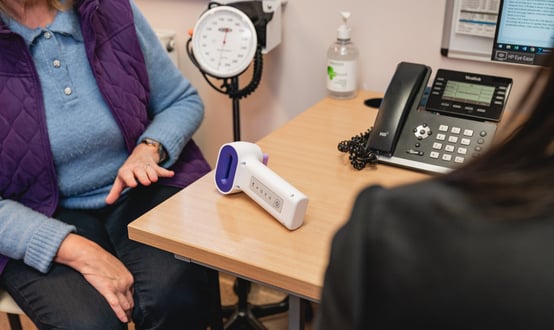Oxford plans next steps on Millennium
- 20 March 2012

Oxford University Hospitals NHS Trust is still dealing with operational and data quality issues related to its deployment of Cerner Millennium, but it is already planning the roll-out of clinical functionality.
A progress report on the implementation of the electronic patient record system was presented to the trust board at its March meeting.
It says there have been some operational and data quality problems since go-live last December, but these were to be expected and were “significantly less than in many other implementations.”
“Planned processes are being progressed to address these and detailed planning is now taking place for the next phase of the project, which will involve the roll-out of the clinical functions of the system,” it adds.
The report says many of the data quality issues relate to “training and understanding the new workflows.”
More than 3,500 staff were trained on Cerner Millennium before go-live and additional training on how to manage workflows has been provided for hundreds of key staff since.
Patients have been most affected by issues with the Patient Contact Centre – the system used to book appointments. New processes took longer than expected to handle, causing delays.
The Oxford Mail reported that patients spent up to an hour waiting for their calls to be answered. The trust says the issue has been resolved with the “introduction of some additional resource.”
“Some patients also experienced delays in outpatient clinics as new systems have taken time to bed in.”
A report to the trust board in January said data quality issues were continuing and the trust had yet to report performance data from Millennium.
A plan was in place to address the issues with the support of BT, which deployed the system as part of its National Programme for IT in the NHS contract for the South, and Cerner. The trust confirmed to EHI that it is now reporting using Millennium.
The January plan also included additional ‘on the ground’ support for staff in the emergency department.
The March report says the introduction of clinical functionality will involve rolling out the clinical components of the new system, including electronic requesting and reporting of diagnostic tests, and improved clinical documentation and communication.
Plans are in place to use respiratory medicine as an exemplar area. This will be brought on-line in early May, followed by a roll-out across the whole trust over the next year.
A new integrated clinical theatre system is also being brought in. This will support scheduling of cases and the delivery of improved clinical information as well as supplying an integrated clinical record.
Figures in the report reveal the changeover to Millennium involved the migration of more than 1.5m patient records, more than 114,000 future appointments, and more than 30,000 referrals; with a success rate of almost 100%.
The implementation also involved merging data from Nuffield Orthopaedic Centre – which was one of the first adopters of Cerner Millennium in the South – with data from the other three hospitals within the trust – which previously used other systems. More than 200,000 patients merged successfully.
“As part of the consolidation process, a service review is planned with each service over the next few months.
"[This will] optimise the build and ensure that the workflows between clinicians and administrative staff are made as effective as possible for each service, thereby improving the patient experience,” the report adds.
Nine hundred new PCs have been installed, 300 re-cycled workstations have been put in, and 80 computers on wheels have been deployed to support the ED and maternity.
In January 281,000 inbound messages were sent in to the system with 1.3m outbound messages. About 36,000 lab requests were generated in January and 9,500 radiology requests.
The report was prepared by director of planning and information Andrew Stevens and John Skinner, director of Oxford Health Informatics Service and EPR programme director.
Dr Paul Altmann, the chief clinical information officer at Oxford, reflects on the go-live in this week’s Insight section.




